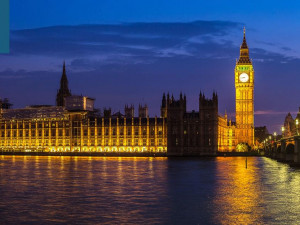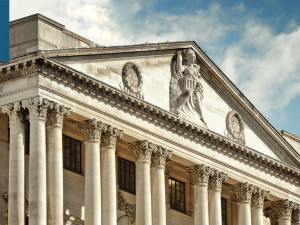
IMF expects to see coherent policy
Morning mid-market rates – The majors
14th October: Highlights
- Kwarteng to perform another mini-budget U-turn
- USA and Saudi Arabia row over recent OPEC supply cut
- Rates set to rise above 3%
GBP – A debt-fuelled crisis drives IMF concern
They agree with the Office of Budget Responsibility that spending cuts are needed to balance the books but have not published any figures to back this up, although the OBR puts the number at around sixty billion pounds.
It’s rumoured that Truss has considered ripping up the mini budget due to its unpopularity with backbench Conservative MPs and the effect it has had on the markets.
There is a genuine possibility that if the presentation of the next financial plan goes poorly, Truss will find her position untenable.
It is a long time, if ever, that a Prime Minister has lost control of the Party so quickly. The lack of planning and understanding following the resignation of Boris Johnson, is bordering on breath-taking.
The Chancellor reacted to rumours of his departure from number 11 Downing Street by stating categorically that he is going nowhere. The fact is, he may not have a choice if he is unable to heal the rift between the Treasury and the Bank of England.
There appears to be a campaign run by Truss supporters to lay the blame squarely at the door of Andrew Bailey, claiming that the Bank of England drove the mayhem that is still affecting the markets.
Jacob Rees-Mogg claims that rising interest rates are to blame, but that is a separate issue to the crisis. The reaction in the gilts market is in direct response to the level of Government borrowing that will be necessary if the proposed tax cuts remain in place.
The Bank of England’s intervention in the government’s bond markets ends today, although the amount of gilts planned for purchase is significantly higher than it has been on previous days. It is hoped that the Central Bank has done enough to quell the market’s unease with fiscal policy.
The answer to that question may not be clear until the end of the month, by which time, patience with the Prime Minister and Chancellor may be wearing thin.
The pound rallied to a high of 1.1380 yesterday as pressure eased on long term interest rates. It closed at 1.1324, but traders are still anxious about the prospect of another significant fall next week.
Recommend our services and earn up to £75 per successful referral
USD – US inflation still remains higher than expectation
Although headline inflation remains at its highest for several years, the pace of its increase has slowed dramatically. In September, prices rose on average by 8.2% down from 8.3% in August, but still a shade higher than market expectations.
The market still expects another 125 basis points of hikes over the Central Bank’s final two meetings of the year. If that is the case, they will certainly be split 75 and 50, respectively.
It is hard to say if the Chairman is satisfied with progress that has been made so far in lowering inflation. He is expected to supply more advanced guidance in the coming weeks.
With the benefit of hindsight, the Central Bank looks to have the pace of its programme of hikes about right. The FOMC felt, according to the minutes of its recent meetings, that the economy could take a series of seventy-five basis point hikes without being forced into recession, and so it has proved.
However, no one is yet discounting a recession in the first quarter of next year, as headline employment data will become even more important.
The most recent report of weekly jobless claims saw the headline rise back above 200k. Market commentators will want to know if that was a one-off or whether claims have reached a bottom, which is likely if Fed policy is proving effective.
The Dollar Index appears mired in a 114/112 range. It is still well-supported at lower levels but is unable to garner sufficient momentum to break higher. This is probably due to uncertainty about how hawkish the Fed will be after its next meeting.
EUR – Some dispute about the neutral level, but 3% should suffice
He is unsure of when rates will turn restrictive, but believes that the rate that needs to be reached is around 2.5%, although he estimates that to be effective short-term rates will need to remain around 3% for a considerable time.
It is likely that the ECB will hike short term rates by seventy-five basis points at its next meeting, although a hike of one hundred points cannot be discounted.
This will supply some support to the single currency, as well as slowing the rise in the rate of inflation.
Wunsch went on to say that real interest rates in the Eurozone remain very much in negative territory, and the Central Bank’s goal is for them to be positive as soon as possible and then restrict demand so as to bring inflation down quickly.
Despite the remarks from the Chairman of the ECB recently, the Governing Council’s base case is for the Eurozone to be in a technical recession by the end of the year. Any future drop in GDP estimates will be drawn from the performance of energy markets.
Although fundamentally different from the UK and US economies, the Eurozone has been travelling down the same path as its G7 partners. Each has wanted to hike rates faster to quell inflation but must be mindful of the effect that will have on the economy.
The Eurozone also had the added issue of the withdrawal of support that had been added to help some weaker economies deal with the effects of the pandemic.
Robert Holzmann the Austrian Central Bank President is the most hawkish member of the Governing council. He commented yesterday that the last hike of seventy-five basis points had been wholly justified and that he hoped that the hike announced on 27th October would be of at least a similar size.
The Euro saw some good buying interest yesterday as the traders saw the ECB as being prepared to hike rates while the Fed is preparing to taper its own hikes and the UK has issues of its own making.
The single currency rose to a high of 0.9806 but fell back to close at 0.9774.
Alan Hill
Alan has been involved in the FX market for more than 25 years and brings a wealth of experience to his content. His knowledge has been gained while trading through some of the most volatile periods of recent history. His commentary relies on an understanding of past events and how they will affect future market performance.



